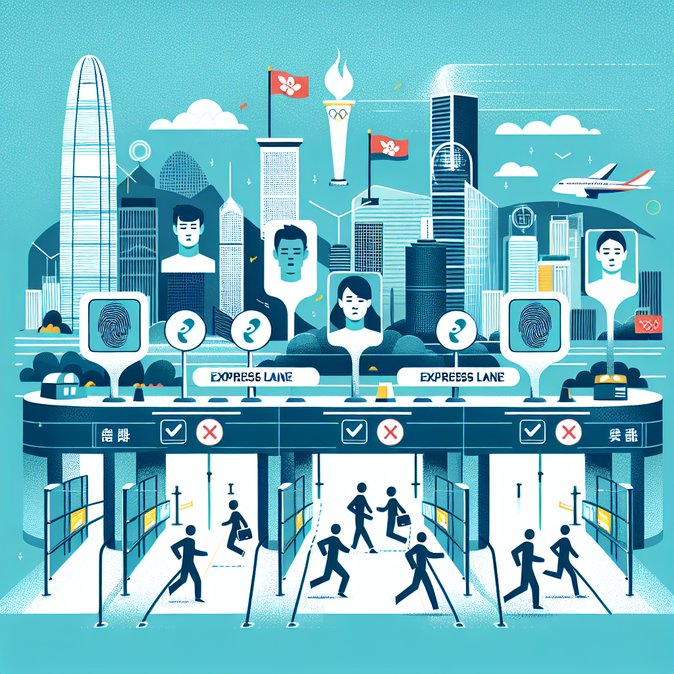
Hong Kong’s Immigration Department has switched on dedicated facial-recognition gates at Hong Kong International Airport, West Kowloon High-Speed Rail Station, the Hong Kong-Zhuhai-Macao Bridge and Shenzhen Bay Port, just weeks before the SAR co-hosts the 15th National Games in November. Sixteen “express lanes” (two inbound and two outbound at each port) will serve some 5,000 accredited athletes, officials and media, allowing them to clear immigration in as little as seven seconds without presenting travel documents.
Director of Immigration Benson Kwok said the project marks the first time Hong Kong has relied entirely on biometric verification for a specific traveller cohort. Data captured during each crossing is auto-matched against encrypted templates created at accreditation, with no paper boarding passes or passport scans required after the initial registration. The system is part of a wider push to modernise border infrastructure and cope with the surge in cross-boundary traffic expected when Hong Kong, Guangdong and Macao jointly stage the Games.
For multinational companies moving staff or equipment between event venues, the new lanes promise materially shorter queuing times and greater schedule certainty—critical when moving time-sensitive broadcasting kits or sports medicine supplies across the Pearl River Delta. The Immigration Department has pledged to staff additional counters for spectators and to convert the Games-only lanes back to public use after the event, hinting that the technology could later be extended to frequent-traveller programmes such as the e-Channel.
Privacy advocates have raised questions about data retention and cross-border sharing with Mainland authorities, but officials emphasise that usage is voluntary and restricted to Games personnel. Early trials showed a 97 % first-pass match rate; contingency kiosks will capture fingerprints if the facial scan fails. Should the pilot prove successful, sources say Hong Kong may adopt biometric corridors for business-traveller fast-track schemes in 2026, aligning the city with Singapore’s Changi and Dubai’s DXB, which already run similar systems.
Director of Immigration Benson Kwok said the project marks the first time Hong Kong has relied entirely on biometric verification for a specific traveller cohort. Data captured during each crossing is auto-matched against encrypted templates created at accreditation, with no paper boarding passes or passport scans required after the initial registration. The system is part of a wider push to modernise border infrastructure and cope with the surge in cross-boundary traffic expected when Hong Kong, Guangdong and Macao jointly stage the Games.
For multinational companies moving staff or equipment between event venues, the new lanes promise materially shorter queuing times and greater schedule certainty—critical when moving time-sensitive broadcasting kits or sports medicine supplies across the Pearl River Delta. The Immigration Department has pledged to staff additional counters for spectators and to convert the Games-only lanes back to public use after the event, hinting that the technology could later be extended to frequent-traveller programmes such as the e-Channel.
Privacy advocates have raised questions about data retention and cross-border sharing with Mainland authorities, but officials emphasise that usage is voluntary and restricted to Games personnel. Early trials showed a 97 % first-pass match rate; contingency kiosks will capture fingerprints if the facial scan fails. Should the pilot prove successful, sources say Hong Kong may adopt biometric corridors for business-traveller fast-track schemes in 2026, aligning the city with Singapore’s Changi and Dubai’s DXB, which already run similar systems.










